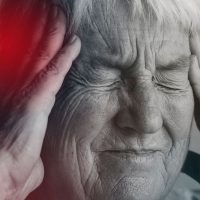What You Should Know About Social Anxiety
Published on March 10th, 2021
Updated on January 2nd, 2024

Social anxiety is a condition in which a person feels anxious in social situations. Each person with social anxiety is different. They will have different triggers and different reasons for developing social anxiety. Social anxiety is a challenging disorder to have. It causes insecurity and trouble with building relationships.
Many people suffer from social anxiety. Both people who are extroverted and introverted can be anxious in social situations. Spreading awareness about what it means to have social anxiety is the first step in allowing people the time and space to process their feelings and feel more comfortable with others. Consider these 9 things to know about social anxiety to develop an understanding of the condition.
1. People with social anxiety may struggle with feeling awkward.
People with social anxiety often feel like they are awkward and do not fit in with others. This feeling plays a huge role in holding affected people back from being comfortable in social situations.
Sponsored by

Choose a therapist to work with and start healing with 20% off from BetterHelp.
Click HereWhen a person with social anxiety is in a social situation, they often feel as though the spotlight is on them. This causes them to feel socially pressured, which can result in them shutting down. This tendency can lead to the affected person feeling awkward, out of place, or unwanted. As a result, they may flee from the social situation, or behave in a way that makes them seem aloof or disengaged.
2. Social anxiety can cause people to present themselves as rude or disinterested in social situations.
Social anxiety is a disorder that causes affected people to be misunderstood. Those who suffer from social anxiety communicate an unintended message through their body language and behaviors.
People with social anxiety may struggle with the following nonverbal social cues:
- Lack of eye contact
- Not participating in conversation
- Holding arms across the body
- Standing along the outskirts of a social group
- Not eating with people
- Hunching shoulders forward
- Covering face or eyes with hats or sunglasses
- Avoiding hugs or contact with others
- Weak handshakes
These behaviors are the result of feeling nervous but often are perceived as being rude, closed off, or disinterested.
3. Social anxiety is not the same as an introverted personality.
There is a social expectation for a person to be outgoing. The social norm is to have an extroverted personality, so when a person is more reserved or introverted, they may be misidentified as someone with social anxiety. People can be introverted without having social anxiety, and extroverted people can struggle with social anxiety.
The key difference between introversion and social anxiety is the discomfort that comes from social situations. If there is a level of anxiety, avoidance, and/or distress that comes from socializing, then a person has social anxiety. If a person is just naturally reserved, then they are just introverted. Introverted people may also experience some nervousness when meeting new people, but this nervousness does not cause avoidance, dread or distress, and is easily overcome within the first few minutes of meeting a new person.
4. People with social anxiety want to be able to feel comfortable in social situations.
Socially anxious people may feel hopeless to get better. They may be fearful of breaking out of their shell and leave their comfort zone. Being comfortable in social situations does not come naturally to them, but affected people do want to be able to create relationships with others.
Social stigma sets a person with social anxiety up for facing challenges in feeling comfortable around others. They often want to be comfortable in social situations, but cannot figure out how. Social stigmas attached to people with social anxiety include being the following:
- Awkward
- Rude
- Unkind
- Disengaged
- Disinterested in socializing
5. Different factors may cause a condition of social anxiety.
Everyone who has social anxiety is different. They have different triggers, causes, and symptoms, that they may face in different situations. There are many possible causes of social anxiety. Such causes of social anxiety may include:
- Genetics and family history
- Learning socialization skills as a child
- Struggling with other forms of anxiety
- History of bullying
- Feeling like an outcast while in school
6. Diagnosis of social anxiety depends on different factors.
Diagnosis of social anxiety depends on different factors. It will depend on the level of anxiety felt when in social situations, physiological symptoms of anxiety, and the discomfort the affected person suffers from in different situations. Such situations may include:
- Working with a team
- Being exposed to large crowds or groups
- Striking up conversations with new people
- Developing new friendships
- Being placed in unfamiliar social situations
7. Treatment and therapy can be intimidating for people who suffer from social anxiety.
A major reason why people do not get treatment for social anxiety is because of the nature of their condition. To receive treatment for social anxiety, you must be willing to talk to a mental health professional. For some people with social anxiety, even the first outreach call or email to a therapist is intimidating. It can also be scary for people with social anxiety to talk about themselves and address their insecurities, which can cause affected people to put off starting therapy, even if they know it will be helpful.
8. Treatment can help a person with social anxiety manage their symptoms.
Even though it is intimidating to start, people with social anxiety respond well to treatment. With treatment, a person can learn how to cope with their symptoms. They develop social skills and anxiety management skills. Affected people can also learn about their condition and develop their sense of self-esteem.
Therapy can be very helpful for helping a person with social anxiety. In therapy, an affected person can learn skills to cope with their symptoms. There are also support groups and community programs that help those with social anxiety feel more comfortable in social situations.
9. There are forms of therapy that can be especially helpful for learning how to manage social anxiety.
Effective therapy approaches include cognitive behavioral therapy and dialectical behavioral therapy. Each of these forms of therapy help to slow down the stress reaction when confronted with an uncomfortable social situation. They teach thought challenging skills and distress tolerance skills. They can also help a person take control of their anxiety and build a sense of self-esteem that helps them feel more confident in social situations.
Sponsored by

Find an affordable therapist online with 20% off from BetterHelp.
Click Here






Leave A Reply